The Economics and Statistics Division maintains archives of previous publications for accountability purposes, but makes no updates to keep these documents current with the latest data revisions from Statistics Canada. As a result, information in older documents may not be accurate. Please exercise caution when referring to older documents. For the latest information and historical data, please contact the individual listed to the right.
<--- Return to Archive
For additional information relating to this article, please contact:
June 18, 2021BANK OF JAPAN MONETARY POLICY Based on the current economic situation and the economic outlook, the Bank of Japan decided to maintain the negative interest rate of -0.1% on balances of financial institutions at the Bank. The Bank of Japan will also purchase a necessary amount of Japanese government bonds (JGBs) without setting an upper limit in order to keep the 10-year JGB yields at around zero per cent.
The Bank decided to extend the duration of the Special Program to Support Financing in Response to the Novel Coronavirus by 6 months until the end of March 2022. With financing conditions expected to remain under stress for the time being, this extension is expected to continue to support financing needs, mainly for firms.
In addition, the Bank will purchase exchange-traded funds (ETFs) and Japan real estate investment trusts (J-REITs) so that their amounts outstanding will increase at annual paces with upper limit of about 12 trillion yen and about 180 billion yen, respectively. The Bank will continue purchases of Commercial paper and corporate bonds with an upper limit on the amount of outstanding of about 20 trillion yen in total until the end of March 2022.
The Bank will continue with "Quantitative and Qualitative Monetary Easing (QQE) with Yield Curve Control," aiming to achieve the price stability target of 2 per cent, as long as it is necessary for maintaining that target in a stable manner. The Bank also noted that it will continue expanding the monetary base until the year-on-year rate of increase in the observed CPI (all items less fresh food) exceeds 2 per cent and stays above the target in a stable manner.
Japan’s economic growth has been on an upward trend although it remains below the pre-pandemic levels. Recovering economies have lifted exports and industrial production and business sentiment has improved. While some industries are facing weakness, business fixed investment has picked up as a whole.
With downward pressure on consumption of services, mainly in hospitality and accommodation sectors, private consumption has been stagnant. Public investment continues to increase while housing investment has stopped declining.
The Japan consumer price index (CPI, all items less fresh food) is expected to be at around 0.0% in the short-term due to COVID-19 and rebasing effects. Excluding temporary effects, year-on-year CPI change is expected to be steady before rising with energy prices later in the year. The Bank of Japan notes that the "inflation expectations have been more or less unchanged".
The Bank noted that it will closely monitor the impacts of COVID-19 on the Japanese economy and is prepared to take additional easing measures as needed. The Bank expects short- and long-term policy interest rates to remain at their present or lower levels for the time being.
The Bank of Japan’s next Monetary Policy Meeting is scheduled for July 15/16, 2021. The Bank's outlook for developments in economic activity and prices will be released at the same time with the July MPM.
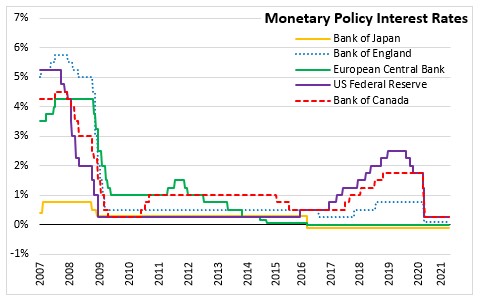
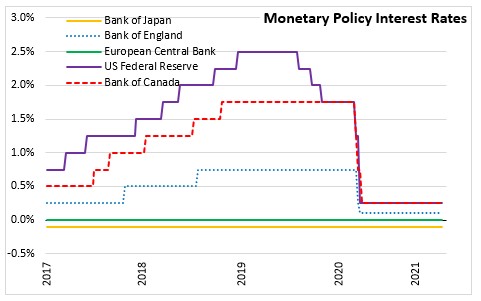
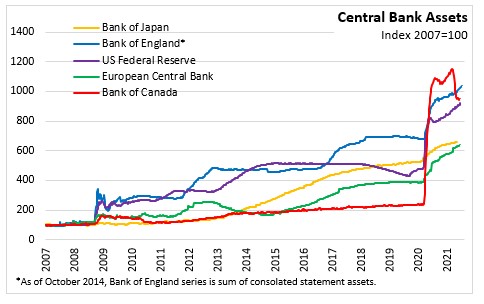

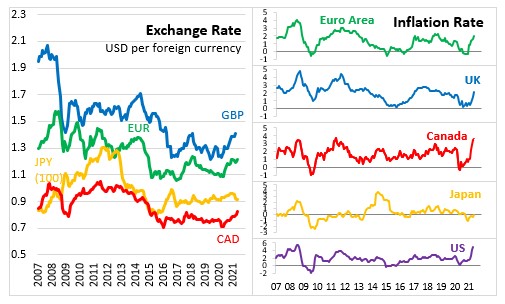
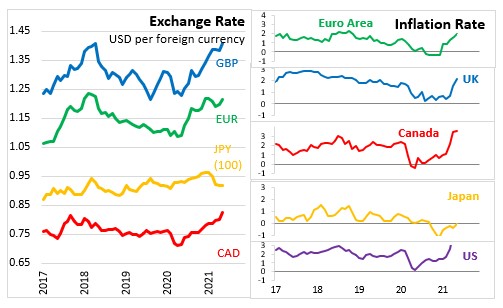
Source: Bank of Japan, Statement on Monetary Policy (June 18, 2021)
<--- Return to Archive